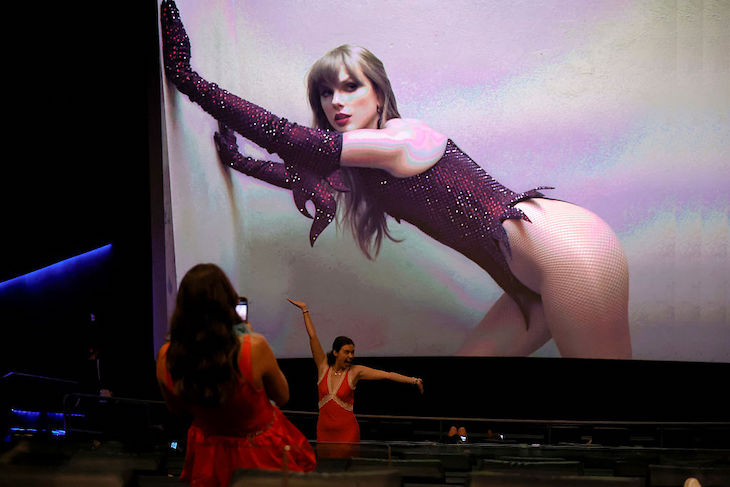Labour has decided to lean into the £2,000 tax hike claim by the Tories, and turn it into a row about lying. Keir Starmer yesterday accused Rishi Sunak of ‘lying’, saying: ‘That’s why the choice at the next election is starker now than it was yesterday. It’s a choice between chaos and confusion, the sort of thing we’ve seen now for 14 years, and now lies on top of it. Or turn the page and rebuilding with Labour.’
The problem is that this £2,000 tax claim is not out of the ordinary
It is not a strategy without risk: it allows the £2,000 claim to be repeated. But given that was going to happen anyway, the party has decided to try to recover from its leader’s flat-footedness in Tuesday’s TV debate.
Interestingly, the party has not made the row about governments requiring the civil service to produce these costings, something former Cabinet Secretary Gus O’Donnell has called the ‘grubbiest’ job he and his fellow mandarins had to carry out. Labour could have called for the abolition of the costing process, but it has chosen not to, with a conscious decision being made by senior figures to go hard on Tory lies. For one thing, having a row about civil servants and the costing process is one of the most boring things you could attempt to do in an election campaign where everything must be in primary colours and focused on what voters care about. Instead, the row needs to tell voters something about the Conservatives that makes them worry about the impact on their own lives. Being able to trust a government is still important.
The word ‘lie’ is a taboo in British politics: something people outside the Westminster system don’t often understand. You are not allowed to accuse your opponent of lying in the House of Commons: instead, you have to say they may have unwittingly misled the Chamber, and request that they correct the record. The whole Privileges Committee process around partygate was about whether Boris Johnson deliberately misled the House – i.e. lied – over what he knew about lockdown-busting partying in Downing Street.
Journalists do not expect spinners to lie to them, instead accepting that they will be given half-untruths such as ‘I haven’t seen that’ when asked about a row which definitely happened but which the aide was not personally present for. On the rare occasions when hacks have been lied to, even about something quite innocuous, their rage is total. So the word ‘lying’ – even though it is quite often directed at politicians by members of the public – isn’t often heard in Westminster. It is significant that Keir Starmer and his colleagues are now trying to say it as often as possible.
The problem is that this £2,000 tax claim is not out of the ordinary. It doesn’t fit into the category of lies that horrify the Commons. It is the sort of dodgy maths that every party resorts to during election campaigns. Labour has spent the past few months banging on about a ‘£46 billion fiscal black hole’ which is based on a policy the Tories don’t even have (their pipe dream of abolishing national insurance at some point in the future). Jeremy Hunt recently accused Labour of ‘a lie’ over this very claim. The Lib Dems continue to produce bar charts that primary school children would recognise as inaccurate. Mel Stride has been doing the broadcast round for the Tories this morning, and said it was ‘wrong’ to say Sunak had been lying, pointing out that ‘Labour did exactly the same thing’. Given there is still – even after the Johnson era – a high bar around the accusation of lying in British politics, Labour needs to make sure it hasn’t lowered that bar so much that it finds it has stepped over it too.








Comments